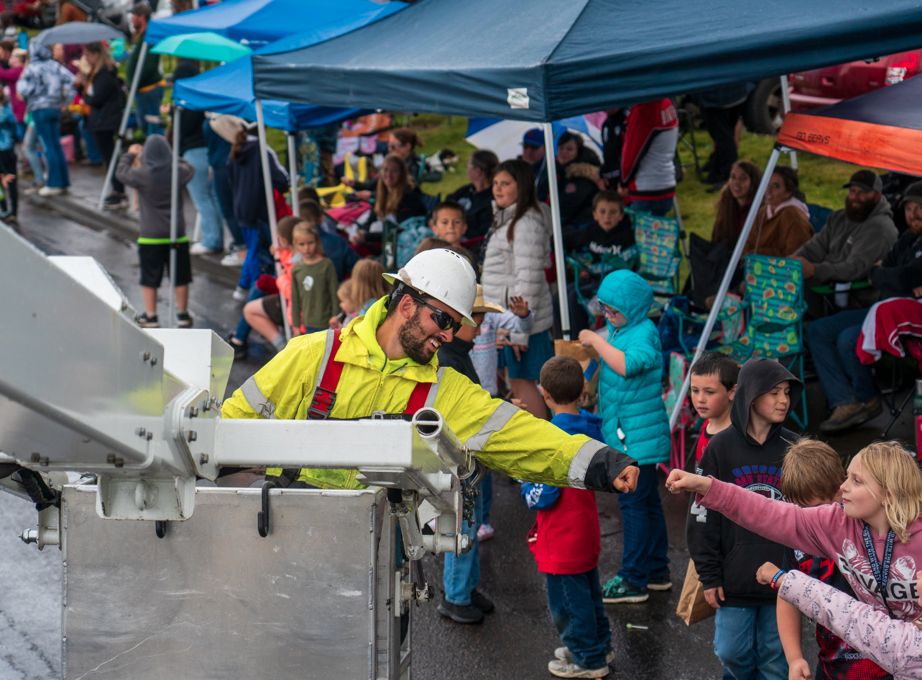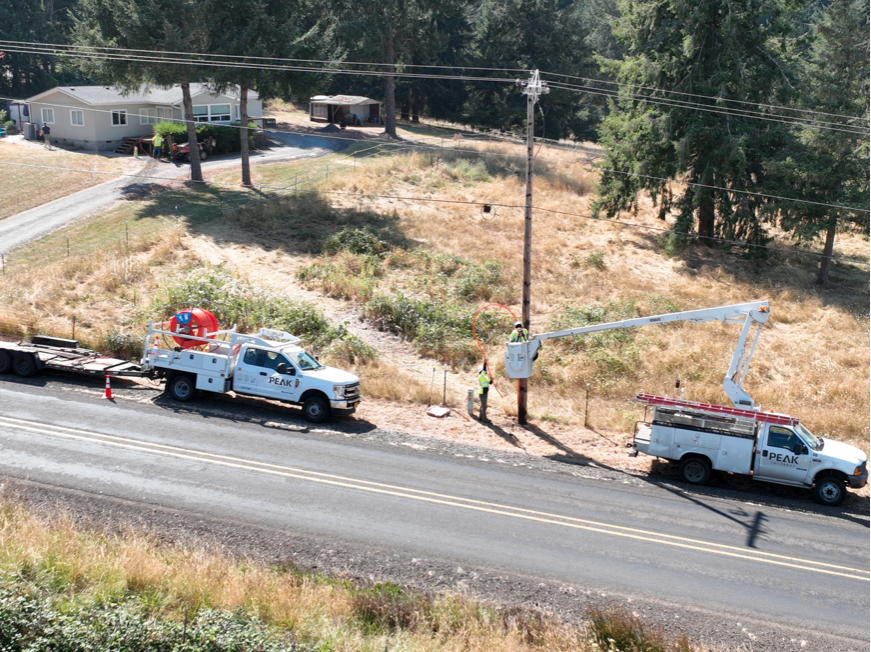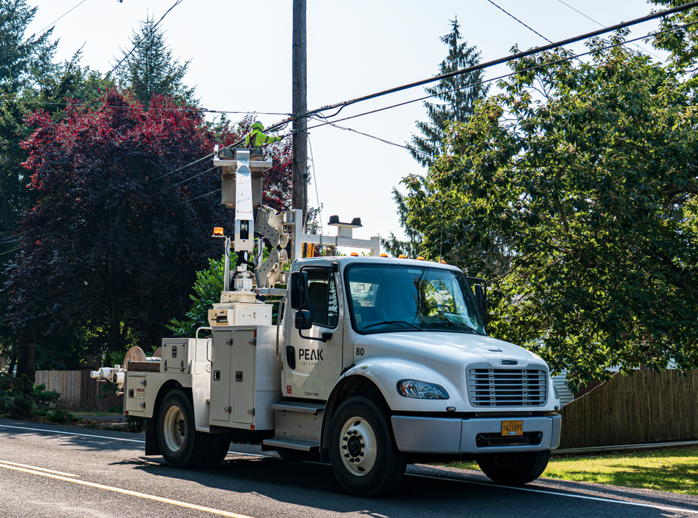As PEAK Internet Expands Its Investment in Fiber Broadband, It Continues to Grow Opportunities for Its Communities
Oregon is an amazing place to live as we are blessed with beautiful natural surroundings like forests, lakes, and mountains. The flip side, however, is that it can be challenging to get access to the same services enjoyed by people living in more urban areas.

During the pandemic, few services became more important than a fast, reliable internet connection. In 2021, approximately 38 million people were working remotely. This is expected to be the norm for 15% of American workers. That’s roughly triple the pre-pandemic rate.
Historically, in many parts of Oregon, only a few organizations have invested in building fiber-optic networks—the best infrastructure for providing telecommunications services. One of those is PEAK Internet, located in Corvallis and Lebanon, Oregon, which serves more than 20 communities across the state.

As we first reported in October 2021, “PEAK Internet closes digital divide for rural customers”, PEAK Internet is a local company that’s been providing connectivity to homes, businesses, schools, libraries, universities, hospitals, and veterans homes for decades. In 2012, they started investing in a fiber-optic network infrastructure that now spans over 100 miles in Linn and Benton county.
PEAK Internet is a wholly owned subsidiary of Consumers Power, Inc., a member owned electric cooperative serving over 23,000 members in parts of six counties in Oregon. “Fiber is a really important part of service to our members but also for the operation of the electric utility” says Roman Gillen, President & CEO of Consumers Power.
“Fiber is the best technology for delivering telecommunications services, which is why we continue to invest in building future-proof networks,” says Rick Petersen, President & CEO of PEAK Internet. “But just as important for a local company that’s dedicated to our communities is providing great customer experience. We do that with a team of local technical experts who are available on a 24/7 basis.”
Working from home isn’t the only growing trend. Without organizations like PEAK investing in delivering fiber-optic connections to homes in rural parts of the state, it would be extremely difficult—if not impossible—for children to learn from home. A slow, unreliable connection also presents challenges for accessing remote medical and mental health services, banking, or entertainment.
“We’re proud to be working to eliminate the digital divide that exists in certain parts of Oregon,” says Matt Webb, PEAK’s Manager of Sales and Business Development. “We know that a reliable Internet connection results in huge economic and social benefits for the communities that we serve. Small businesses can stay open thanks to online sales. Residents who used to travel for meetings can now join them from home. High school and college students can join virtual classes while their parents are working from home.”

This summer, PEAK had the honor of providing internet connectivity to the broadcasters at the Oregon 22 World Athletics Championships held at Hayward Field in Eugene Oregon. This once-in-a-lifetime event brought together the world’s best track and field athletes from more than 200 nations in a celebration of diversity, human potential and achievement.
In its ongoing effort to provide Oregon with the best connectivity possible, PEAK recently launched new, ultra-fast Internet packages in Corvallis, Lebanon, and Albany, offering speeds up to 5 Gigabits per second. That’s 200 times faster than the FCC’s definition of broadband (25 Megabits per second), which is what many of the area’s existing providers offer.
And this is just the beginning. PEAK Internet is committed to ensuring that all residents of its service area have access to a fast, reliable Internet connection—powered by fiber. PEAK fiber transforms Oregon into an amazingly desirable place to live, allowing people to enjoy the beautiful natural surroundings while they enjoy the conveniences often associated with living in more urban communities.


Advertisement